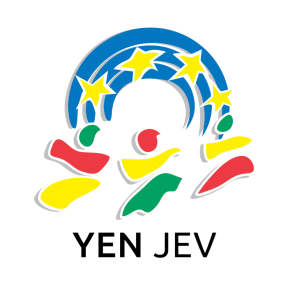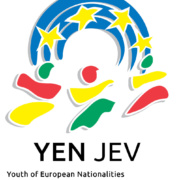Resolution on key issues concerning European Youth

Alliance of European Voluntary Service Organizations1, Phiren Amenca2, Voices of Young Refugees in Europe (VYRE)3 and Youth of European Nationalities (YEN)4 are European networks which together represent ethnic, national and language minorities, Roma and Sinti population, young refugees and volunteers. As we all have closely related target audiences and common aims, we have partnered to collaborate for the promotion of youth participation, intercultural understanding, preservation and development of the rights of marginalised and vulnerable groups. We are striving to understand and offer solutions for the problems young people are facing in Europe.
Europe has been struggling with several major issues in recent years, including the increased displacement of people, the rise of xenophobia and intolerance in society as well as a lack of possibilities and motivation of youth to participate. Together we have developed this resolution to take a standpoint on the developments of Europe for young people today.
Alliance, Phiren Amenca, VYRE and YEN having considered the recent developments in Europe, notably:
- Today, increasing obstacles to social inclusion, particularly for minorities, and marginalised and vulnerable groups in Europe can be observed. This is largely due to increasing polarisation and fear of the ‘other’, lack of representation and participation in society, especially in the political, institutional and legal structures.
- The needs of marginalised young people and vulnerable groups, particularly refugees and the Roma community, are not being sufficiently considered or prioritised in current social structures and legal frameworks. They are often facing limited access to different parts of the society, such as the education system and the labour market.
- A lack of awareness and understanding of diverse groups in society is partly caused by youth distanced from society, uninformed young people, an education system that is not meeting the needs of the youth and irresponsible media.
- Lack of transparency and unapproachable decision-making processes are described by youth as problematic. Thus, there has been an increasing lack of trust in politicians, creating a gap and disconnection between youth and decision-makers.
- Changes in society and promoting active participation are not sufficiently considered in the current formal education system. Non-formal education and the expertise of NGOs are not being recognised as important tools for learning.
- Due to ineffective communication methods by stakeholders, a lack of awareness of the meaning and benefits of active citizenship and participation can be monitored.
- Minority languages and languages of marginalised groups are often being considered as invaluable and unnecessary tools of communication. Hence, many minorities have difficulties with preserving their identity, language and culture.
- Increased polarisation in society and a negative effect on the participation of young people in their communities has been caused by the regular use of social media as a channel of hate speech, populism and sharing false information.
Therefore, soliciting all national, regional and international institutions in Europe, YEN, VYRE, Alliance and Phiren Amenca:
Call for an accurate, equitable and increased representation of all social groups in the media, political system and official institutions.
Ask for the promotion of diversity and equity through increasing awareness, encouraging collaboration, sharing best practices and concrete actions on the rights of youth.
Highlight the need to support minorities and vulnerable and marginalized groups, especially refugees and the Roma population, to reduce obstacles, increase access and prioritization of their needs to facilitate inclusion in society. The adaptation of current social structures and legal frameworks, as well as implementing representative policies are recommended.
Urge for equal access to education for marginalised and vulnerable groups and minorities. This will also require the increase of research and improvement of teacher education regarding minorities and vulnerable and marginalised groups.
Call for the promotion of societal-oriented education and empowerment within the education system with the implementation of subjects regarding decision-making processes and active citizenship in the education system.
Appeal for more transparency in decision making processes using user friendly tools, such as online platforms and public dialogue.
Highlight the importance of active citizenship and participation, especially volunteering, within society through formal and non-formal education and within official institutions and the media.
Urge for official recognition and adequate representation of minority languages and history within society, particularly in all levels of the education system, the public sphere, in state institutions and the media, with the provision of platforms to promote and preserve minority languages and culture.
Appeal for the involvement of all stakeholders in the promotion of responsible media and social media usage, through formal and non-formal education. This should counter irresponsible, incomplete and exclusive media reporting.



